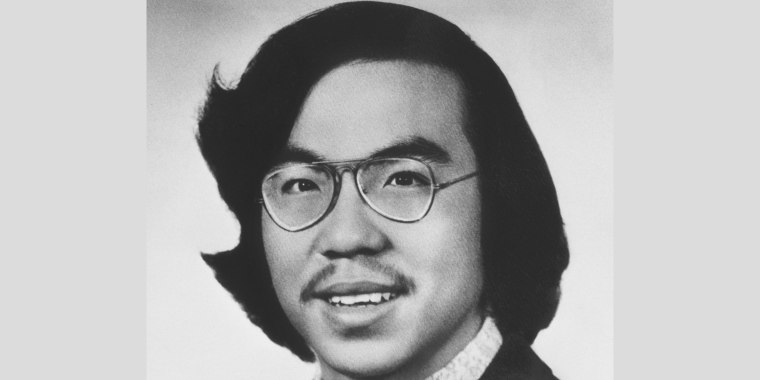As cities nationwide commemorate the death of Vincent Chin, civil rights advocates say this anniversary is particularly resonant in light of increasing hate and violence aimed at Asian Americans.
Sunday marks 40 years since the death of Chin, a Chinese American man who was killed in Detroit by two white autoworkers who blamed him for layoffs in the industry.

Chin, 27, was celebrating his bachelor party with friends on June 19, 1982, when he was beaten to death by Ronald Ebens and Michael Nitz. They wrongly accused Chin of being Japanese and of stealing their jobs. The men involved in Chin’s death never served jail time.
Decades later, advocates said the racial reckoning that emerged in the wake of Chin’s killing paved the way for the latest movement condemning anti-Asian hate in the U.S.
“The Vincent Chin case was the first time that Asian Americans came together in a broad base, mass way to say, ‘You know what, we’re all in this together,'” said Helen Zia, the executor of the Chin estate and one of the co-founders of American Citizens for Justice, an Asian American civil rights group founded in response to Chin’s killing. “Many different Asian advocacy organizations were born out of that moment to say ‘never again.’”
Some of that legacy is evident in advocacy events this year from Michigan to New York to California. The Vincent Chin 40th Remembrance and Rededication Committee organized a slate of events this week to honor Chin’s death. In Detroit, the committee, for example, is screening “Who Killed Vincent Chin?,” a documentary on his life and murder. The Flushing Hate Free Zone Campaign in Queens and the Chinese American Museum in Los Angeles are holding vigils celebrating his legacy.
Leaders from advocacy groups such as Whenever We’re Needed and the Japanese American Citizens League are using the moment to speak out on panels about the Asian American civil rights movement.
Despite the efforts, some say there is much more work to be done.
“Vincent Chin was killed at a time of intense anti-Asian hate. … It was a constant drumbeat,” Zia said. “The significance today is, we’re at another time like that.”
From 2020 to 2021, there was a 339 percent rise in crimes targeting Asian Americans and Pacific Islanders, according to a report by the Center for the Study of Hate and Extremism.
The ongoing hate crimes reflect a larger pattern of xenophobia and violence targeting the community, said Meera E. Deo, a law professor at Southwestern Law School in California.
“Vincent Chin was another example of many that began when Asians first arrived in the U.S.,” Deo said. “Even when media attention falls off, a large portion of society continues to see Asian Americans as perpetual foreigners, passive or submissive outsiders, or unAmerican.”
Manjusha Kulkarni, the executive director of the AAPI Equity Alliance and the co-founder of Stop Asian Hate, said the community is pushing for robust anti-discrimination policies and education that highlights the contributions of Asian Americans and Pacific Islanders.
“They want strong civil rights protections, true community safety, not just policing,” Kulkarni said. “But a comprehensive community safety solution.”
In the years after Chin’s death, Zia recalled that his mother, Lily, was one of his most vocal advocates in the pursuit of justice. Zia hopes Chin is remembered as a friendly and “all American guy.”
“Vincent Chin’s story is an all American story, and the whole idea of a community standing up for his right to be fully human,” Zia said. “That’s what Vincent Chin represents. That is what his mother fought for.”
